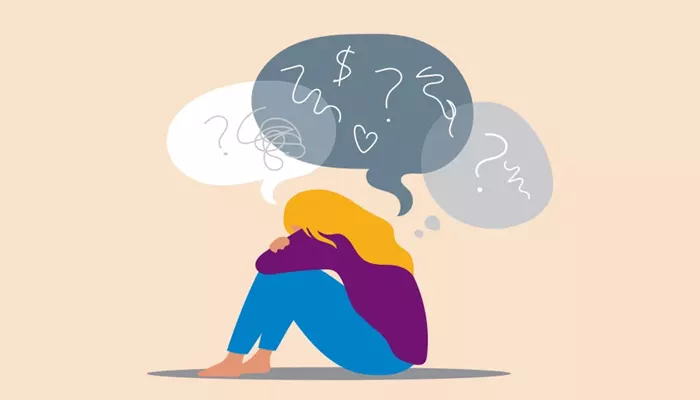Anxiety and depression are common mental health conditions that affect millions of people worldwide. They can make life feel overwhelming, challenging, and sometimes hopeless. However, it is possible to find happiness and live a fulfilling life even while managing these conditions. This article will guide you through understanding anxiety and depression, recognizing symptoms, and adopting practical strategies to improve your mental well-being. It will also provide self-tests and professional suggestions to support your journey toward happiness.
What Are Anxiety and Depression?
Anxiety is a feeling of worry, nervousness, or fear that is strong enough to interfere with daily activities. People with anxiety disorders experience frequent and excessive anxiety, fear, or panic in everyday situations.
Depression is a common mental health disorder characterized by persistent sadness, loss of interest or pleasure in activities, fatigue, and difficulty managing emotions.
Both conditions can occur together and affect how you think, feel, and behave, but they are treatable with the right support and coping strategies.
Recognizing Symptoms: Self-Tests for Anxiety and Depression
Before seeking professional help, you can try simple self-assessment tests to understand your mental health better.
Anxiety Self-Test
- Do you often feel nervous, restless, or tense?
- Do you have trouble controlling your worries?
- Do you experience physical symptoms like a racing heart, sweating, or trembling?
- Do you avoid certain situations because they make you anxious?
If you answered yes to several of these questions, you might be experiencing anxiety symptoms.
Depression Self-Test
- Do you feel sad, empty, or hopeless most of the day?
- Have you lost interest or pleasure in activities you once enjoyed?
- Do you feel tired or have low energy?
- Do you have trouble sleeping or sleep too much?
- Do you have difficulty concentrating or making decisions?
Answering yes to several of these questions may indicate symptoms of depression.
Professional Suggestions for Managing Anxiety and Depression
1. Seek Professional Help
Consulting a mental health professional such as a psychologist or psychiatrist is an important step. They can provide diagnosis, therapy, and medication if needed. You can start by talking to your general practitioner (GP), who can refer you to specialized services. Many mental health services offer talking therapies like cognitive behavioural therapy (CBT), which are effective for both anxiety and depression.
2. Build a Support Network
Stay connected with family, friends, or support groups. Socializing can improve your mood and help you feel less alone. Peer support communities can also be valuable for sharing experiences and encouragement.
3. Develop Healthy Routines
Maintaining a daily routine provides structure and a sense of control. Try to wake up, eat meals, and go to bed at regular times. Good sleep hygiene is crucial as poor sleep worsens symptoms.
4. Practice Physical Activity
Exercise has been shown to reduce symptoms of both anxiety and depression. Start with gentle activities like walking for 20 minutes daily and gradually increase intensity.
5. Use Coping Skills
Learn and practice coping strategies such as:
- Slow breathing: Count to three while breathing in and out slowly to calm anxiety.
- Progressive muscle relaxation: Tense and relax muscle groups to reduce physical tension.
- Mindfulness and meditation: Focus on the present moment to reduce worry about the future.
- Positive journaling: Write about things you are grateful for or positive experiences to improve moo.
- Behavioral activation: Engage in enjoyable or meaningful activities even when you don’t feel like it.
6. Face Your Fears Gradually
Instead of avoiding anxiety-provoking situations, try small acts of bravery. For example, if public speaking causes anxiety, start by speaking to a small group of friends. This builds confidence and reduces anxiety over time.
7. Challenge Negative Thoughts
Learn to recognize and question negative self-talk. Ask yourself if your worries are based on facts or assumptions, and try to find more balanced, positive perspectives.
8. Maintain a Healthy Diet
Eating a balanced diet supports physical and mental health. Avoid excessive alcohol, which can worsen depression and anxiety.
9. Be Kind to Yourself
Practice self-compassion. Accept that it’s okay to have difficult emotions and that recovery takes time. Treat yourself with the same kindness you would offer a friend.
Additional Tips for Improving Mental Wellbeing
- Take breaks from negative news and social media to reduce stress.
- Spend time outdoors in nature and engage in hobbies you enjoy.
- Develop a sense of meaning and purpose through work, volunteering, or learning new skills.
- Plan “worry time” to contain anxious thoughts instead of letting them take over your day.
- Keep a diary to track your moods and identify triggers and helpful coping strategies.
When to Seek Immediate Help
If you experience thoughts of harming yourself or feel that your life isn’t worth living, seek help immediately. You can contact emergency services, your GP, or helplines such as Samaritans for confidential support.
Conclusion: Finding Happiness with Anxiety and Depression
Living with anxiety and depression is challenging, but happiness is achievable. By understanding your condition, seeking professional help, building supportive relationships, and practicing healthy habits and coping skills, you can improve your mental health and well-being. Remember, progress may be gradual, and it’s important to be patient and kind to yourself throughout your journey.
Related topics:
- How to Support Someone with Anxiety?
- What Helps With Anxiety At Night?
- How To Deal With Stress & Anxiety & Depression?


